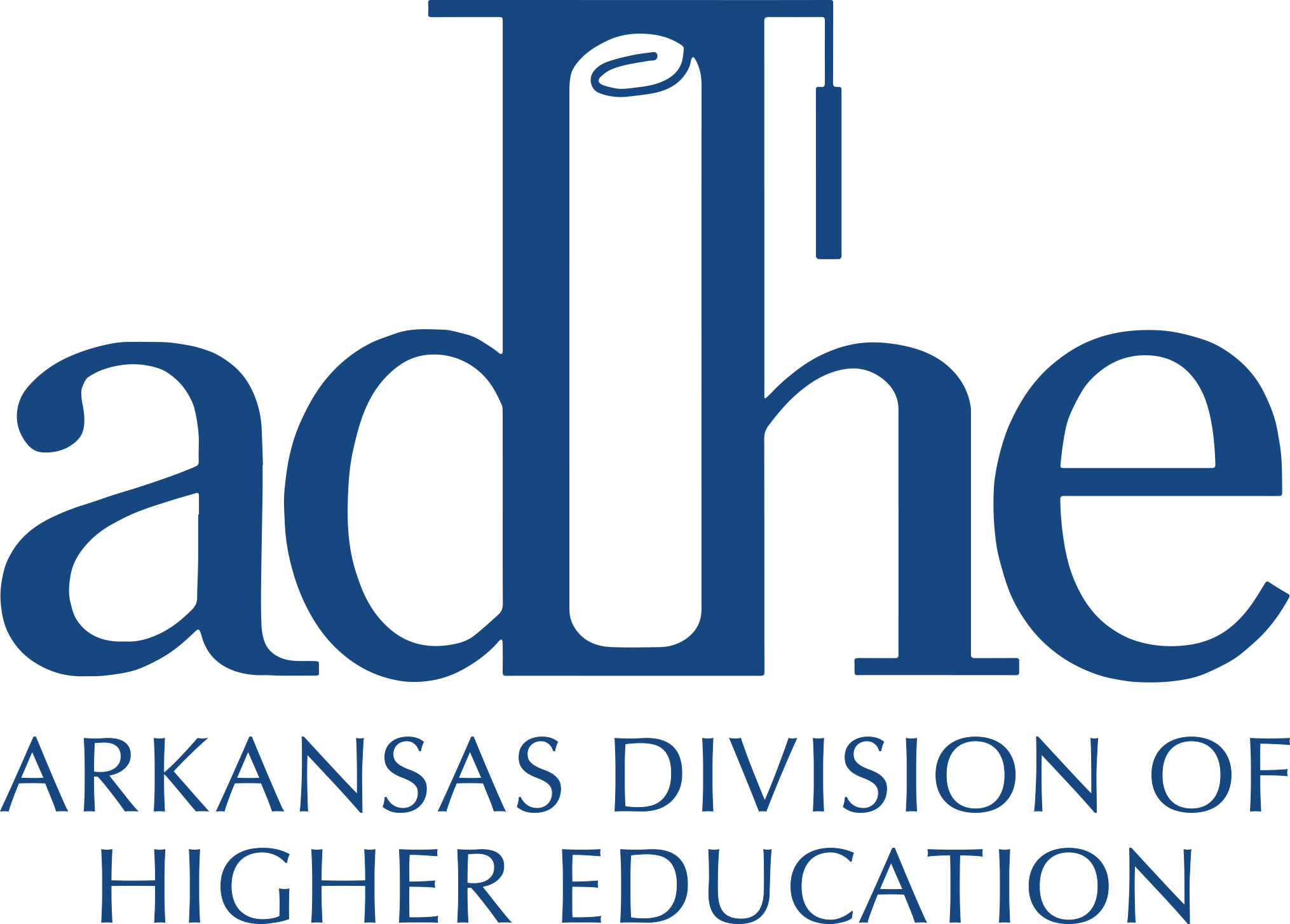Arkansas Academic Challenge Scholarship | ACST
Important Note: The following information is intended as a general overview of the program for those applying, or who are considering applying, for the scholarship and is not intended to be a comprehensive compilation of program requirements. For complete information, please refer to the program’s rules and regulations.

The Arkansas Academic Challenge Program provides scholarships to Arkansas residents pursuing higher education. Funded in large part by the Arkansas Scholarship Lottery, the Arkansas Academic Challenge Scholarship is available to students regardless of their academic status, whether they are just graduating from high school, currently enrolled in college, enrolling in college for the first time, or re-enrolling after a period of time out of college.
Traditional Recipient Info Sheet Non-Traditional Recipient Info Sheet
Scholarship Deadline to Apply
Annual Deadline
July 1
Requirements
See below for basic eligibility information. For more detailed information on eligibility requirements for Traditional and Non-traditional students, please see the Rules and Regulations listed at the bottom of this webpage.Award Amount
Varies depending on college and college level of individual
Who May Apply:
Traditional: Students applying for the upcoming academic year who expect to attend an approved college or university in the academic year following their graduation from a public high school, a private or out-of-state high school, or homeschool must have one of the following to qualify.
- ACT composite score or superscore of 19+ (**)
- Accuplacer score of all three sections averaging 246
- Classic Learning Test score of 58+
- High School GPA of 3.00
- Diploma of Merit
Traditional students must begin attendance in at least 12 credit hours in the first Fall semester following high school graduation and at least 15 credit hours each semester thereafter to receive their funds that semester. This means they must earn at least 27 credit hours in their first academic year and at least 30 credit hours each academic year thereafter, with a cumulative GPA of 2.5.
Freshmen finishing their first academic year who did not apply for or qualify for the Academic Challenge Scholarship may be considered Traditional students if they were enrolled as a full-time, first-time student and earned 27 hours with a 2.5 GPA in their first academic year. If they do not have 27 hours at the end of Spring, they can still apply as a Non-Traditional student. Non-Traditional Students are defined as students currently in college who did not receive the Academic Challenge Scholarship, as well as adults who have completed some college, but do not have a degree.
Non-Traditional: Students with some or no college credit can qualify. If a student has some college credit, they may be considered eligible with a cumulative college GPA of at least 2.5. A student with no college credit can qualify as a Non-Traditional student if they have an ACT composite score or superscore of at least 19 (or an equivalent of a 19 composite on an equivalent test).
Non-traditional students may begin attendance with fewer semester credit hours than the required number for Traditional students and still receive a prorated scholarship award for that semester. They must also maintain a cumulative GPA of at least 2.5 and earn the appropriate number of hours, based on whether they attended full-time (15+ credit hours) or part-time (less than 15 credit hours) each semester.
**NOTE: ADHE will take the official composite or superscore from ACT only. We are not able to manually add or remove the Science from any ACT test that is taken, Legacy or Enhanced. You will need to coordinate with ACT and/or your high school counselor to determine the best option to reach the ACT composite or superscore you are aiming for BEFORE you take the test. You cannot then decide AFTER the test to add or remove the Science score.
Detailed Description
General Information
Important Note: The following information is intended as a general overview of the program for those who are applying, or who are considering applying, for the scholarship and is not intended to be a comprehensive compilation of program requirements. For complete information, please refer to the program’s rules and regulations.
Students are not required to reapply each semester or year to continue to receive the scholarship. The scholarship is renewed on a yearly basis after each Spring semester as long as the student continues to meet the eligibility requirements.
If you are still pursuing the required ACT score, we are delighted to give you additional opportunities to retake the test through the national July ACT testing date!
If you do not believe you will be able to make the qualifying ACT test score or didn’t take the ACT, the Accuplacer test is being offered remotely and can be substituted for the ACT.
If you are awarded over your Federal Cost of Attendance Budget at your institution for the semester or academic year, your scholarship may be reduced. Scholarships are reduced in the order listed in the Stacking Law linked below.
Arkansas Scholarship Stacking Law
Basic Eligibility Criteria (Traditional & Non-Traditional Student)
An applicant must:
- Be an Arkansas resident (at least 12 months prior to enrollment and a US citizen/lawful permanent resident)
- Be accepted for admission at an approved institution of higher education in a program of study that leads to a baccalaureate degree, associate degree, qualified certificate, or a nursing school diploma
- Not have previously earned a baccalaureate degree
- Not have previously earned a total of 120 or more semester credit hours.
- Complete the Free Application for Federal Student Aid (FAFSA) (income is not a determining factor for this scholarship)
- Not owe a refund on a federal or state student financial aid grant for higher education
- Not borrowed in excess of annual federal loan limits
- Not be incarcerated at the time of application for or during the time the applicant receives the scholarship
- Have complied with the United States Selective Service System requirements for registration
- Certify to be drug-free
Additional Eligibility Criteria for Traditional Students
- Enroll in full-time status each Fall and Spring semester by the institution’s Census Date
- “Full-Time” refers to 15 credit hours as defined by the law of the scholarship even though your institution may consider 12 hours full-time status for other purposes
- First-time freshman may enroll in 12 hours for their first Fall semester but must enroll in 15 hours each semester thereafter to be considered full-time and paid the scholarship funds for each semester
- Students must enroll in full-time status at one institution
- Students who complete their bachelor's degree at the end of a term may be enrolled in less than 15 hours and still be awarded a prorated award amount based on their hours
- Graduate from a public school, private school, home school, or received their GED
- Students who are enrolled as a full-time first-time freshman and either missed the previous deadline to apply or didn’t qualify for the Arkansas Academic Challenge Scholarship directly after finishing high school may also be considered for Traditional status if they meet the following:
- Successfully earned at least 27 semester hours in the academic year immediately following high school graduation; and
- Achieved a postsecondary grade point average of at least 2.5 on a 4.0 scale as a full-time first-time freshman.
Additional Eligibility Criteria for Non-Traditional Students
- Enroll full-time or part-time status each Fall and Spring semester by the institution’s Census Date
- Full-time = 15+ credit hours
- Part-time = 6-14 credit hours
- If the applicant HAS NOT BEEN enrolled in an institution of higher education
- Graduated from a public school, private school, home school, or received their GED
- Has a minimum ACT composite or superscore of 19 or an equivalent score on an ACT equivalent test listed later on this webpage
- If the applicant HAS BEEN enrolled in an institution of higher education
- Has earned a postsecondary grade point average of at least 2.5 in completed courses.
Continuing Eligibility Criteria for Traditional Students
- Maintain a 2.5 cumulative GPA by the end of each Spring semester
- Earn 27 semester hours the first academic year and 30 semester hours each year thereafter
- Students who are in their final year of the scholarship may receive a prorated amount if attending less than 15 hours
- Complete all remedial courses during the first 30 hours taken after receipt of the scholarship
- Be continuously enrolled unless student request for scholarship to be placed on hold (maximum hold of four semesters)
- Shall enroll in courses that lead toward a baccalaureate degree after:
- Earning an associate degree; or
- Having less than 4 semesters of funding left
- Will be renewed until recipient first:
- Earns a baccalaureate degree
- Receives all scheduled semester payments for the scholarship
- Earns a total of 120 or more semester credit hours
- If the recipient’s undergraduate degree requires more than 120 additional hours (not that the student is taking longer than 120 hours due to changing classes or programs) there may be an exception made to receive any remaining scheduled payments
Continuing Eligibility Criteria for Non-Traditional Students
- Maintain a 2.5 cumulative GPA by the end of each Spring semester
- Earns at least 15 credit hours each semester of full-time status and earns at least 6 credit hours each semester of part-time status (excluding summer terms)
- Be continuously enrolled, unless student requests for scholarship to be placed on hold (maximum hold of 4 semesters)
- Shall enroll in courses that lead toward a baccalaureate degree after:
- Earning an associate degree; or
- Having less than 4 semesters of funding left (having 72 or more earned hours on record)
- Will be renewed until the recipient meets one of the following situations:
- Earns a baccalaureate degree
- Receives all scheduled semester payments for the scholarship
- Earns a total of 120 or more semester credit hours
- If the recipient’s undergraduate degree requires more than 120 additional hours (not that the student is taking longer than 120 hours due to changing classes or programs) there may be an exception made to receive any remaining scheduled payments
- If the recipient’s undergraduate degree requires more than 120 additional hours (not that the student is taking longer than 120 hours due to changing classes or programs) there may be an exception made to receive any remaining scheduled payments
**ACT Equivalent Scores
| Test Name | Qualifying Scores | Additional Information |
| New SAT | 990 | Test taken March 2016 or later |
| ASSET | 40 | Average of all subscores |
| Classic Learning Test (CLT) | 58 | |
| COMPASS | 64 | Average of reading, writing, and algebra scores |
| ACCUPLACER | 79 | Average of all subscores |
| Next-Generation ACCUPLACER | 246 | Average of reading, writing, and math scores (all three highest scores must be submitted at the same time) |
Forfeiting Freshman Award Amount Form
- If you are an Arkansas high school senior who has/will earn 27 college credit hours or more prior to beginning college in the Fall (after your senior year), you may be eligible to request an increase in Arkansas Academic Challenge funding from the freshmen level to the sophomore level.
- By receiving the higher level, you agree to forfeit the first semesters of eligible funding of Arkansas Academic Challenge.
- Requests to forfeit the freshman award amount are due by July 1.
Forfeit Freshman Award Amount Form
Forfeiting to Senior Award Amount Form
- If you are a current recipient of the Arkansas Academic Challenge Scholarship and has/will earn 87 college credit hours or more prior to your upcoming Fall or Spring semester, you may be eligible to request an increase in Arkansas Academic Challenge funding to the Senior level at $2,500 per semester for two semesters.
- By receiving the higher level, you agree you are forfeiting any payments you would have received before the Senior level of funding.
- Priority deadline for requests to forfeit the senior award amount are August 1st for Fall / January 1st for Spring. If turned in after the priority deadline, your increase may not be processed until after the beginning of the semester.
- The final deadline to request this forfeit is October 1st for Fall / February 1st for Spring.
Forfeit to Senior Award Amount Form
Graduate School Eligibility Criteria
Those that graduate from undergrad early have the option to use the remaining semesters for graduate school. There are a few rules that come with this option, listed below:
- Students who graduate early from undergrad have the option to use one or both remaining semester(s) from their Senior year of funding for graduate school. (Max 2 semesters)
- The Graduate school must be based in Arkansas.
- See “Approved Institution” definition in Rules and Regulations.
- Student must be accepted and start the graduate program the semester immediately following their undergraduate graduation (summer semesters not included).
- Students must submit their Graduate School Form and attach their graduate acceptance letter, linked below.
- If a student has an extenuating circumstance or your graduate program doesn’t start immediately following your graduation, they can have their scholarship held up to a year by submitting a hold through their SAMS account.
- Students must earn 30 hours with a 2.5+ GPA the academic year prior to beginning their graduate program in a Fall semester or 15 hours with a 2.5+ GPA if your graduate program begins in a Spring semester following graduating in a Fall semester in the middle of an academic year.
- The deadline to request this is October 1st for Fall / February 1st for Spring.
The scholarship amount for graduate school is based on the hours enrolled in. Seniors receive $2,500 a semester, if enrolled in 9 or more hours. Below is a chart of the proration.
- Enrolled in 3-5 hours= 50%
- Enrolled in 6-8 hours= 75%
- Enrolled in 9+ hours=100%
Other Information
Arkansas Academic Challenge Scholarship Award Amounts
Starting with the 2025-26 school year students are awarded at the following rates:
| Four Year College | Two Year College | |
| Year 1 | $2,000 | $2,000 |
| Year 2 | $4,000 | $3,000 |
| Year 3 | $4,000 | - |
| Year 4 | $5,000 | - |
Starting with the 2024-2025 academic year, students are eligible for additional funding from Academic Challenge based on their FAFSA’s Student Aid Index (SAI). Students who have an 8,000 SAI or higher are not eligible for the additional funding, and that funding for the Academic Challenge is capped at $2,500.00 per semester. If your SAI is 7,999 or below, the additional funding is as shown below, depending on what type of institution you are attending.
Four Year Institutions
First Year Award:
| Student Aid Index | Additional PLUS Amount | Total Academic Challenge Award |
| 5,750-7,999 | $500 per semester | $1,500 per semester |
| 3,200-5,749 | $1,000 per semester | $2,000 per semester |
| -1,500-3,199 | $1,500 per semester | $2,500 per semester |
Second and Third Year Award:
| Student Aid Index | Additional PLUS Amount | Total Academic Challenge Award |
| -1,500-7,999 | $500 per semester | $2,500 per semester |
Fourth Year Award:
If you are receiving the fourth year of the Academic Challenge Scholarship, you are not eligible for any additional PLUS funds since you are already being awarded at the maximum of $2,500 per semester.
Two Year Institutions
First Year Award:
| Student Aid Index | Additional PLUS Amount | Total Academic Challenge Award |
| 5,750-7,999 | $500 per semester | $1,500 per semester |
| 3,200-5,749 | $1,000 per semester | $2,000 per semester |
| -1,500-3,199 | $1,500 per semester | $2,500 per semester |
Second Year and Fifth Semester Award:
| Student Aid Index | Additional PLUS Amount | Total Academic Challenge Award |
| 5,750-7,999 | $500 per semester | $2,000 per semester |
| -1,500-5,749 | $1,000 per semester | $2,500 per semester |


